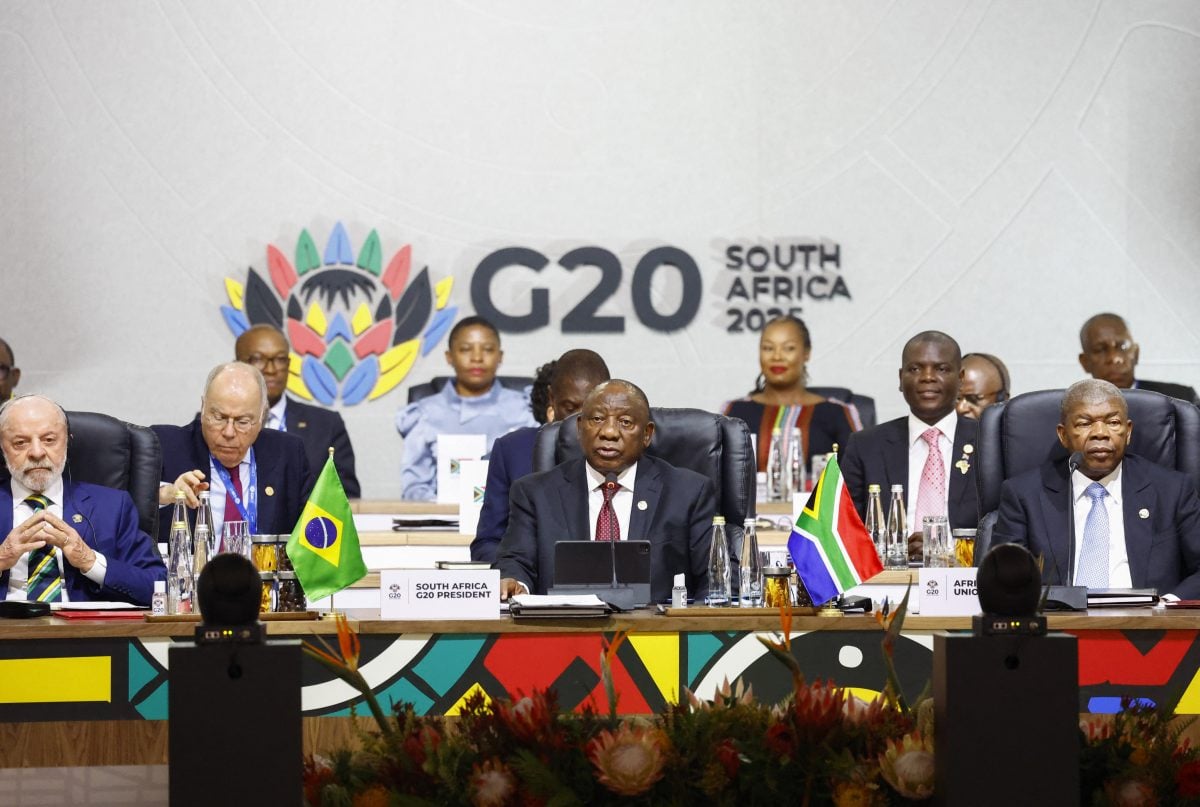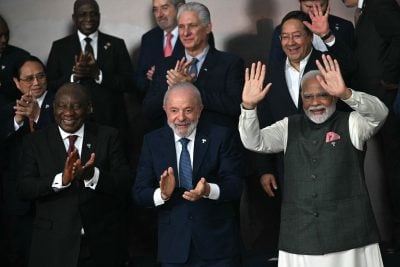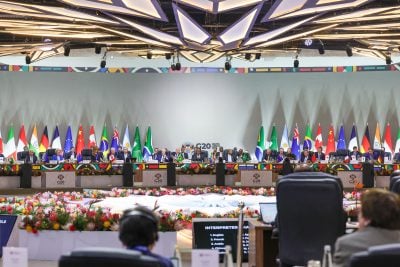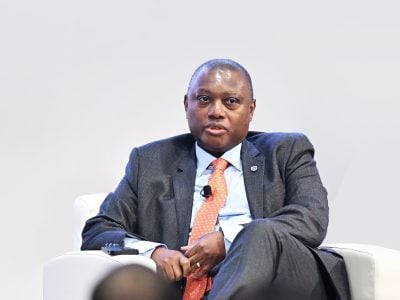From the very outset of his tenure, South Africa’s President Cyril Ramaphosa was clear that this would be the G20 in which African issues are truly centred. Invited only as recently as 2023, the continent has long been something of an afterthought for the annual summit, a platform that is widely perceived as being the key venue for international cooperation, second only to the United Nations. And if the Leaders’ Declaration that capped off the 2-day summit is anything to go by, Ramaphosa can claim the credit for making good on his promise. For the first time, it would seem, Africa is not peripheral to the document, it is central to it, with mentions spread liberally across its 29 pages.
A Summit forged in the spirit of Ubuntu
Indeed, the declaration opens with a recognition of an intensely African concept. “Held in Africa for the first time, this G20 Summit is of special significance to us all. In the spirit of Ubuntu, we recognise that the individuality of each of us is shaped by the interconnection and oneness of all of us,” it notes, a nod to the multilateralism that Ramaphosa has used his period as president to mount a strong defence of. That, as well as the acknowledgment of current geopolitical instability and the commitment to pursue “multilateral cooperation to collectively address shared challenges,” can be read as a triumph for the South African leader’s efforts.
Focus on African priorities: security, debt, climate and energy
One of those key challenges is peace and security. The 2025 declaration gives prominence to the conflicts in Sudan and the Democratic Republic of Congo, alongside those in Ukraine and Gaza, as issues that demand immediate attention. This represents a significant elevation of African security concerns, placing them on a par with conflicts that usually dominate G20 diplomacy. It also signals a recognition that conflicts in the continent have global economic and security spillovers and require global attention and action.
The declaration also prioritises climate change, one of the most potent long-term threats to the continent. Recognising the disproportionate impact as well as the disparities in funding for resilience and disaster response, the statement calls for the global community, “including donors, international financial institutions, development banks and the private sector, to address post-disaster recovery and reconstruction and adaptation, disaster mitigation,” cautioning that this must be done in a way that advances “sustainable resilience, particularly for developing countries and those most vulnerable, respecting their national circumstances and priorities.” While this is not a solely African problem, most SIDs and LDCs are in Africa and action on this would have a significant impact on the continent’s preparedness for climate-induced disasters.
Another Africa-focussed issue – one that Ramaphosa had also committed his presidency to – is the debt challenge. The declaration notes that debt vulnerabilities are “particularly challenging for many low-income countries, especially those in Africa,” where high interest burdens are crowding out development spending at alarming rates. The G20 leaders in their statement reaffirm its commitment to improving the Common Framework for Debt Treatments, while welcoming “recent progress of the Common Framework and note that, five years after its creation, it provided debt treatments to the four countries that had requested it, namely Chad, Zambia, Ghana and Ethiopia.”
Equally significant is the communiqué’s endorsement of IMF quota and governance reforms. “We underscore the need for enhancing the representation and voice of developing countries in decision making in MDBs and other international economic and financial institutions. In that context, we welcome the creation of a 25th chair at the IMF Executive Board to enhance the voice and representation of Sub-Saharan Africa,” the statement affirms. A successful implementation of this would be an important victory for African countries, which have been campaigning for a greater voice in multilateral financial institutions, along with better financial terms that truly reflect the circumstances of a continent that is subjected to a risk premium in the international money markets.
The statement also recognises another stark challenge for the continent, noting that “over 600 million Africans have no access to electricity, with an average access rate of 40 percent for African countries being the lowest in the world and an estimated 1 billion people in Africa lack access to clean cooking. The G20 endorses large-scale initiatives to close this gap. Chief among them is the Mission 300 partnership between the African Development Bank and the World Bank, aimed at connecting 300 million Africans to power by 2030. It also highlights the need for clean cooking transitions, which would remove one of the major causes of premature deaths on the continent.
Value chains, AI and regional infrastructure projects
On critical minerals, another of the priorities Ramaphosa had adopted for his presidency, the declaration in Johannesburg signals a shift in how the continent’s mineral wealth is perceived and hopefully in how the world engages with it. Accepting that African countries must be able to retain more value from their natural resources, the statement announces the creation of a Critical Minerals Framework, a non-binding scheme that, where employed, will support beneficiation at source which, for African countries, means more local processing and value capture, rather than the export of raw materials that has been the norm for many since the colonial era. This aligns with mineral beneficiation policies already emerging in Zimbabwe, Namibia, Zambia, and the DRC, signalling that global conditions may finally be turning in favour of Africa’s long-delayed industrialisation ambitions.
Another key initiative announced by the leaders’ statement is the AI for Africa Initiative, which aims to support access to compute infrastructure, develop AI skills, and create sovereign AI models trained on African datasets. The declaration states that Africa must not be left behind in the emerging technological order and commits to closing the digital divide by investing in digital public infrastructure, connectivity, and cybersecurity. Given that Africa will account for one-third of the world’s youth population by 2050, the initiative acknowledges that the global AI future cannot be built without African participation.
Additionally, the statement signals support for a broad agenda that touches multiple pillars of Africa’s development trajectory, including a renewed focus on infrastructure as the backbone of continental integration. It welcomes the Ubuntu Legacy Initiative, a South Africa–AfDB partnership intended to accelerate cross-border energy, transport, and digital connectivity projects that are indispensable for unlocking the full potential of the AfCFTA and attracting larger volumes of multilateral and private investment into pan-African value chains.
Tackling illicit financial flows and universal health coverage
At the same time, the declaration confronts the long-standing problem of illicit financial flows, noting that Africa loses an estimated $88bn annually and committing to new High-Level Principles to curb these losses while endorsing South Africa’s creation of an Ubuntu Commission to promote global public investment and financial transparency.
In the health sector, the communiqué highlights the Lusaka Agenda on universal health coverage, supports the replenishment of the Global Fund in Johannesburg, and calls for expanded vaccine manufacturing on the continent, a decisive step toward the health sovereignty Africa is seeking in the aftermath of COVID-19’s supply-chain shocks and the reduction of multilateral and bilateral support that it has relied on for decades. The statement also recognises the continent’s demographic dynamism by adopting the Nelson Mandela Bay Target to reduce youth NEET rates by 5% by 2030, while emphasising improved air connectivity and tourism growth as key enablers of employment, mobility, and sustainable development across Africa’s diverse economies.
A different way to engage with Africa
Perhaps, the most consequential sections of the declaration are those on a “Partnership for Africa”. It represents the most explicit Africa-focused chapter in any G20 communiqué to date, declaring support for African industrialisation, trade integration, job creation, and infrastructure development, while noting the expansion of the Compact with Africa to include Zambia and Angola. Importantly, it commits to the implementation of a new long-term Africa Engagement Framework for 2025–2030, which is expected to support African countries to “to achieve their economic, financial, and related objectives.”
For a continent that has fought for global governance reform for decades, this summit and the declaration form a signal moment in that effort. It will also serve, should its lofty ambitions in respect of the continent be realised, as a vindication of Ramaphosa’s dogged pursuit of his agenda, against significant opposition, right to the very end.

 Sign in with Google
Sign in with Google 



